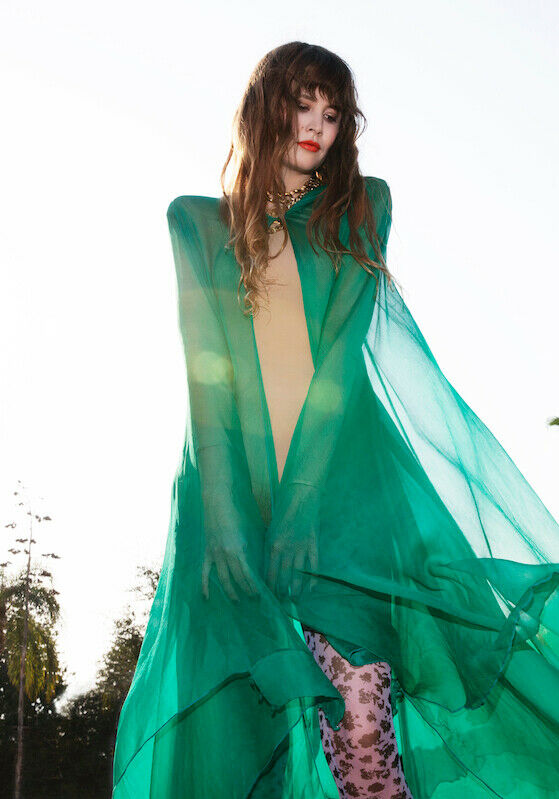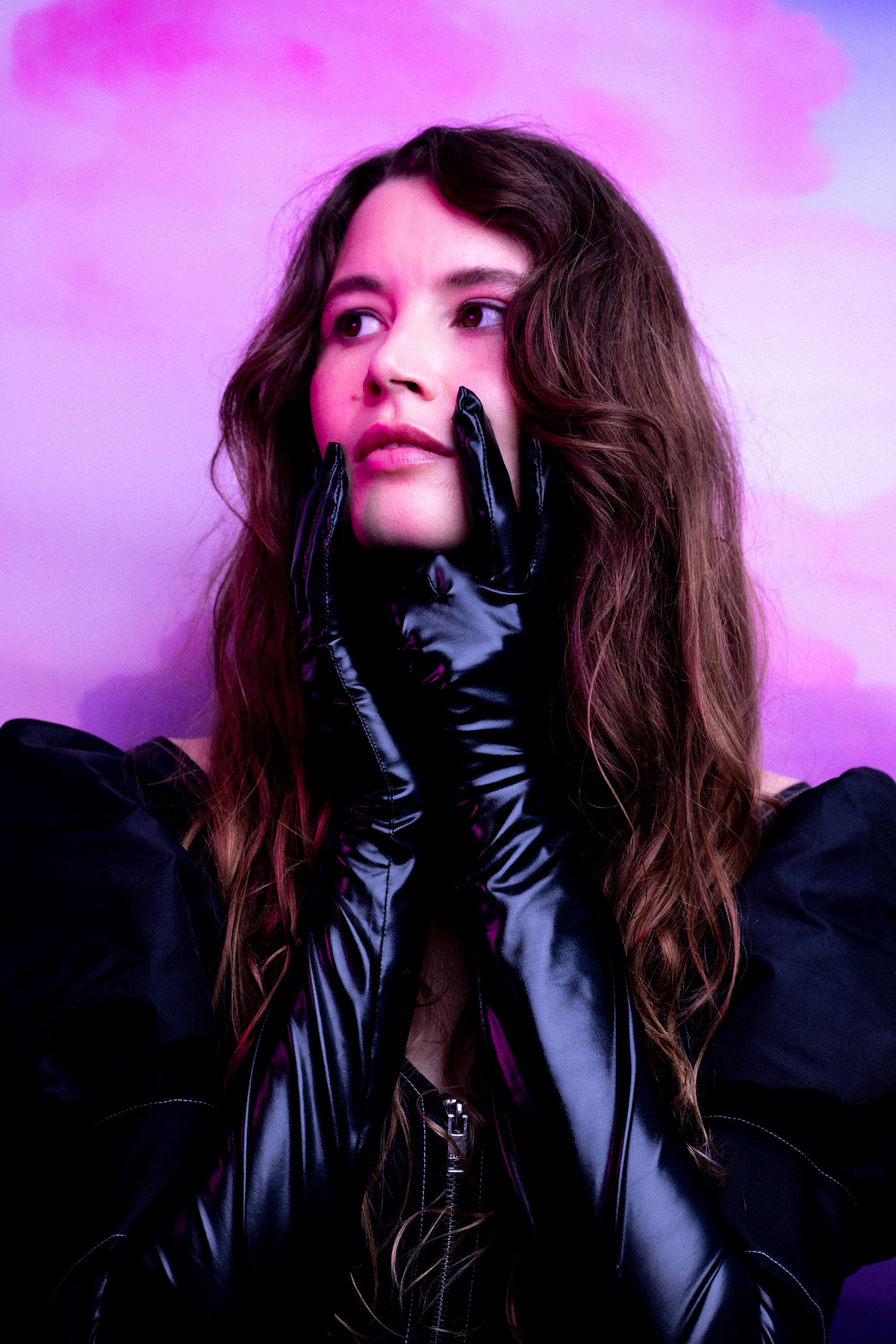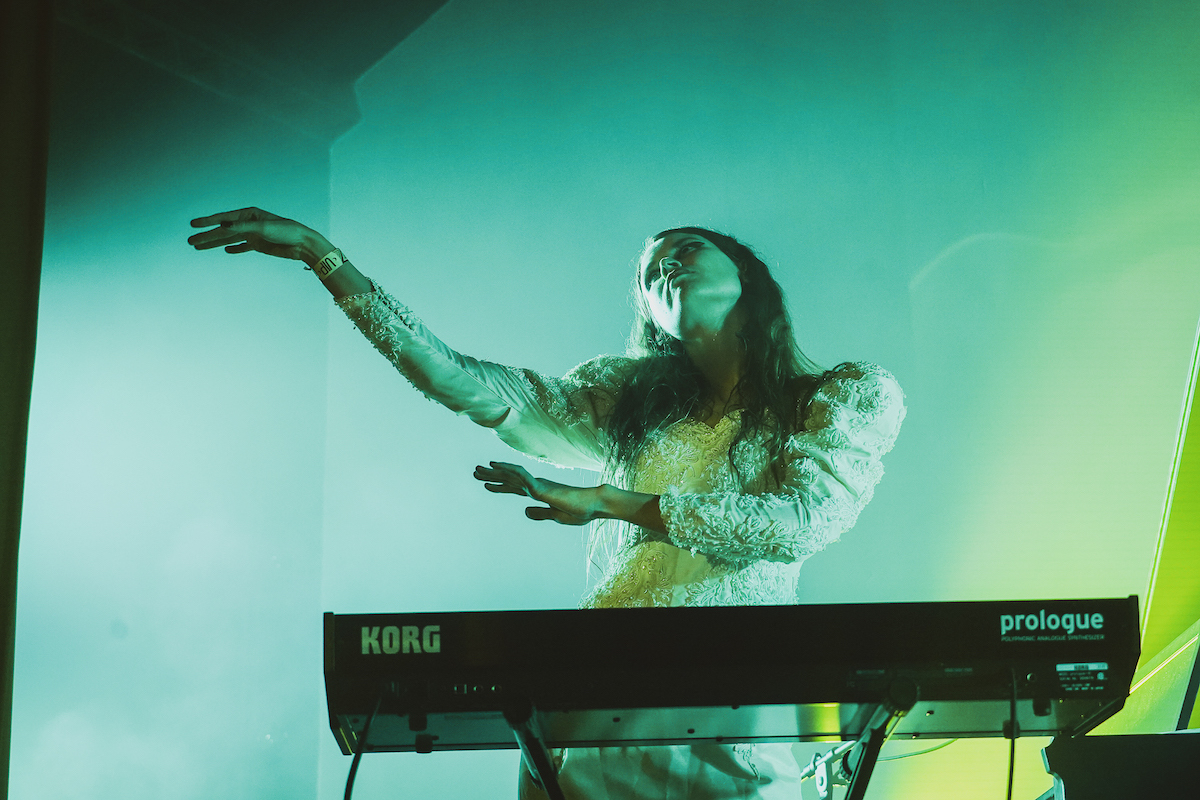After a highly successful film and television scoring career that has seen her scoring the Claire Danes and Tom Hiddleston-starring Essex Serpent, and recently, M. Night Shyamalan flick Knock At The Cabin, Herdís Stefánsdóttir needed a new creative outlet. She chats to Headliner about her incredible new avant-garde pop singles under the name Kónguló, as she gears up for her next scoring projects.
Besides her solo project and music for film, Stefánsdóttir has composed for installations in museums, dance, and theatre — not bad for a law school dropout. She began composing relatively late, in her early twenties and formed synth-pop duo East Of My Youth in 2015. As her interest in film and music grew, she left Iceland to study film scoring at New York University, and upon graduating interned for the late, great Jóhann Jóhannsson in Berlin while he was writing the music for 2016’s Arrival, which was nominated for eight Academy Awards.
Now based back in Iceland with her partner, fellow composer Dustin O’Halloran, Stefánsdóttir recalls this early period of her life as she transitioned into becoming a professional musician. “I'm not one of those musicians that was always in music,” she says. “I'd always played the piano and was very interested in that as a kid. And I remember it very well: one day I sat at the piano and started improvising. And I was like, ‘Whoa, okay, this is cool.’
“I was studying law at the time and really wasn’t enjoying myself. I started studying music theory by myself, and one thing led to another and I ended up studying the classical composition programme at the university here in Iceland. I was also really interested in electronic music, and I was watching YouTube tutorials about compression and EQ instead of going out on a Friday night. I formed an electro-pop duet.”





